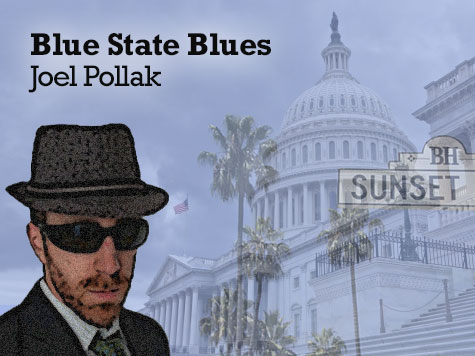California governor Jerry Brown is riding so high in the polls that there is virtually no political force that can stop him. In retrospect, his success was almost guaranteed once he convinced California voters to approve a “temporary” tax hike in 2012’s Proposition 30 (one that Democrats now want to make permanent). That, plus a modest economic recovery, increased revenues enough to allow him to concoct a widely-hailed surplus.
Republicans considered the 2014 elections a chance to rebuild and rebrand the party–to make the most of a losing scenario by angling the party for long-term growth. Wealthy donors poured money into the gubernatorial primary, for example, boosting millennial-friendly Treasury official Neel Kashkari past firebrand Assemblyman Tim Donnelly. Yet as Nov. 4 nears, the state GOP is adrift, politically and ideologically, more broken than ever.
Kashkari turned in a solid debate performance last month but has since wasted that momentum. His latest gambit, an ad portraying a drowning child, bespeaks a an inability to look past Election Day to the party’s future (or his own). Meanwhile, other statewide Republican candidates who led early in the polls are fading rapidly as Election Day approaches, and as voter identification with the party continues to drop dramatically.
Fresno mayor Ashley Swearengin, who seemed to have a decent chance at the office of Controller, has found herself at odds with voters over high-speed rail (she supports it, they don’t) and with her party over Kashkari, who made himself unwelcome by highlighting the economic woes of her town.
Pete Peterson, running for Secretary of State, is perhaps the most likable (and highly qualified) of the party’s new figures, but has struggled to raise money.
In addition, the GOP has neglected statewide races to focus on preventing Democrats from regaining the supermajority in the State Senate that they enjoyed until a string of recent corruption scandals put them back below the two-thirds mark.
Yet while that supermajority is critical to holding Brown and the Democrats in check, it is not something most California voters know or care about. The GOP is simply not speaking to them.
Worse, too many in the Republican Party establishment–particularly voices on high in Washington–believe the road back to political relevance lies through liberal policies. They urge California conservatives to relax their opposition to illegal immigration, to soften their approach to affirmative action, to reject social conservatism.
All of that is a way of saying that Republican voters are the problem, because those are issues they care about.
Many efforts have been invested over the years in more serious attempts to devise alternative policies for the GOP. These include: school choice; fossil fuels; labor reform; new dams; and a flat tax.
The challenge, however, is unifying the party around a common agenda–and weaning elected Republicans from the temptations big-spending Democrats offer.
For example, while Kashkari opposes Brown’s high-speed rail plan, Swearingen backs the “crazy train” as a boost to Fresno.
California Republicans failed to resolve such conflicts in 2014. They focused on isolated legislative races and ignored the state level. The donors that unified against Donnelly showed little interest in rallying around a rising star like Peterson. Instead, they are often reduced to persuading Republicans to vote for the least offensive Democrats.
The question now is not just whether the California GOP can rebuild, but whether it can survive.

COMMENTS
Please let us know if you're having issues with commenting.